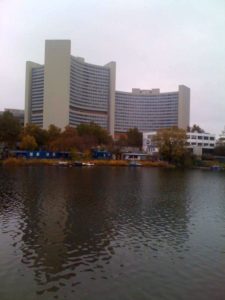POSTED ON
US AID should give all its money for scholarships

For most of us who have spent anytime in the leather and leather using industries the UNIDO has crossed the horizon in a somewhat shadowy way. Occasionally we meet staff in the field, particularly when travelling in Africa or other developing areas, or we have met someone at a conference. Writing in Leather International Limeblast often has a go at such bodies for their failure to make an impact and the comments made appear to have resonance. I also have a good friend who has spent a lifetime working in the sector, mostly with US Aid, and his simple comment has always been that “perhaps the US would do better if it just gave all the money away for scholarships to US Universities”.
In the UK DFID also seems an unfathomable body as it manages to spend outrageous amounts of cash to no apparent benefit. Indeed in some countries where it is clear the leather industry needs help, usually in training facilities or structural reform, small amounts of money that would make all the difference are never to be obtained while staggering amounts are put into corrupt hands in the rather bizarre hope that some will trickle down into the hands of the poor and not too much will end up in Swiss bank accounts and Parisian apartments.
Yet there is no doubt that with hides and skins widely spread making leather goods and footwear is an easily established business that employs large numbers of people. What is more, despite the fact that Arzignano is running scared with a VAT scam, light industry is less easy to steal from than exporting large amounts of raw material such as diamonds, oil, coffee or hides and skins. Indeed if it was not so easy to get rich exporting raw hides and skins some African countries would already have more prosperous tanning and footwear sectors.
UNIDO is a tiny organisation compared to the big bodies like the World Bank and European Development Bank. Indeed I think if you analysed it Britain is spending more than UNIDO’s entire budget just on its aid to Pakistan’s border region (none of which gets near Pakistan’s needy leather sector). In trying to improve the lot of developing countries it is conscious of the fact that it is not just GDP growth but the distribution of income in developing countries that matters. So often as countries increase GDP the rich get richer and the poor get poorer so distribution counts. They also note that while capital and labour are vital inputs for GDP growth technological advancement is actually the key – proven from research into the US economy in the first half of the twentieth century.
Leather can help bring Africa out of poverty
So the work UNIDO does with a tiny fraction of that small organisation’s expenditure has a huge importance in terms of what it can do to leverage places like sub Saharan Africa out of poverty. Leather really is the most obvious answer to rapid and sustainable job creation for the region. In the main I find myself of the view that UNIDO’s work is a catalyst for good and has to be given our fullest support.
At the same time we all remember that UNIDO had rather become the repository of early retirees from the industry in the west, topping up pensions and filling time while the industry rushed to new countries in Asia. Looking back this was probably a win-win situation. UNIDO and other aid organisations obtained valid technology transfer at moderate costs since this group were not looking for major financial reward as the first priority. Now time moves on and we see that this is a generation which is passing. Who will do this work in the future, not just for UNIDO but for all the other aid bodies? And how will those new individuals construct a viable income structure that can do more than top up a pension for a few years?
Mike Redwood
16th November 2009